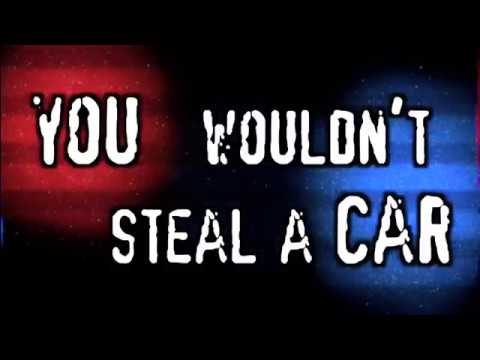This Week, We Have to Drink When Somebody Else Has Never:
- Pirated
- Unfriended
- Failed to collaborate
- Fought on a Train
- Entered the ruling class.
Thanks to Casper and Miller for contributing this week, never have they ever failed us. Send articles throughout the next week to ploughmanplods [at] gmail, post articles from the past week below for discussion, and Have a Happy Friday!
A. A. Dowd looks at Unfriended as the movie that best encapsulates the internet for Digital Trends:
This is where Unfriended moves from ingenious fun to something more scathingly perceptive. Laura’s cyberbullying victimizers-turned-victims have learned to separate their public image, and their self image, from the toxic impulses they indulge from their keyboards. What they do online doesn’t “count,” effectively — it might as well be a different person secretly posting that embarrassing video or telling that peer to go kill herself. They’re experts, in other words, at compartmentalizing. And the film mirrors that dark talent in lots of visual and conceptual ways: Dividing the frame into boxes and boxes within boxes; creating overlapping layers of conversation, as when what Blaire says to the group deviates from the private messages she types out to her boyfriend.
Crooked Marquee’s talks about the pivotal partnership between Drew Barrymore and director Tamra Davis:
While Davis has been able to bring out the best in Barrymore throughout their collaborations, her direction on Best Menspeaks to her ability to draw credible performances from actors whose filmographies can charitably be described as inconsistent. Andy Dick’s portrayal of an expectant father whose marriage isn’t as stable as one would hope is an unpretentious career best, and Dean Cain’s role as a meathead ex-Marine with a secret brings out an appealing sense of humor that many of his performances lack. Screenwriters Art Edler Brown and Tracy Fraim open the film with a refreshingly progressive discussion of the male protagonists’ sexual fluidity, which allows the protagonists to lower their guards and be more open and honest with one another throughout the film. The four lead actors have a believable chemistry among them, giving Best Men the feel of a proto-2000s hangout movie like The Hangover.
At Torrent Freak, Ernesto Van der Sar looks at new research on the psychological reasons why the infamous “You wouldn’t steal a car…” anti-piracy ads didn’t work:
The general assumption of many people is that, by adding more arguments, the message will be more compelling. That’s called the ‘more-is-better’ heuristic but behavioral research has shown that the opposite is often true. When many arguments are presented together, the stronger ones may actually be diluted by weaker ones. So, referencing malware, fines, low quality, Internet disconnections, and losses to the industry, all while associating piracy with organized crime, is not the best idea.
The FAR hates recency bias but loves trains, so we present this Polygon collection of the best train fight scenes with some hesitation unbecoming of locomotion:
The Raid series changed the action world, emphasizing brutal action that is easy to comprehend visually. After the first movie’s vertical approach in a high-rise apartment building, the second is considerably more spread out in narrative approach and location. In this standout scene (spliced together by a YouTuber so you only see moments from this sequence), Julie Estelle’s “Hammer Girl” absolutely wrecks some dudes on a train with her signature hammers. The Raid 2 would like to remind you that hammers have two sides, and they are both extremely deadly.
For Harpers, Christian Lorentzen goes long on the legacy of Christopher Hitchens:
That [Hitchens] became a cop on behalf of liberalism, at least in his mind, is one of the ironies of his life. He quotes [Isiah] Berlin saying, “I think liberalism is essentially the belief of people who have lived on the same soil for a long time in comparative peace with each other. An English invention.” Then he asks, “If liberalism is geographically and even ethnically limited, where is its universality?” You sense the interventionist stirring in him. As such, he would combine Berlin’s notion of negative liberty—freedom from oppression by fanatics and tyrants—with his idea of positive liberty: democracy delivered by American cluster bombs. The Berlin essay is Hitchens at his most thrilling, and as with the pieces on Philby, Vidal, Wolfe, and Wodehouse, not to mention the books on Orwell and Kissinger, he was at his best evaluating the generations that came just before him. It was when he started to conceive of himself as a member of the ruling class, a cop rather than a gadfly, that something was lost.


